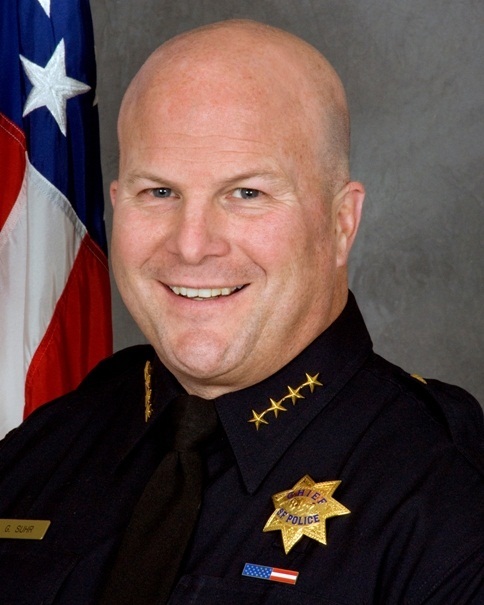When the Rules Committee meets Thursday morning to discuss police use of force, I suspect there will be a lot of focus on policy, which is fine: You have to set good rules to get good outcomes, and some of the rules that the SFPD plays by need to be changed.

But there’s another question looming, and it has to be addressed:
Where, in all of this, is the accountability?
I got an email today from John Crew, who has spent much of his legal career in the field of police oversight, and was for many years the police practices lawyer at the Northern California ACLU.
He’s send a long message to the supes, which I will print below, but let me summarize:
It does no good to set new policies if there’s no accountability for people who violate them.
We can have all the new equipment and new procedures in place that Chief Suhr wants, but none of it will make any difference if officers are allowed to break the rules with impunity:
Even if they all have Tasers and shields and nets and what have you, and are all trained in crisis intervention and force de-escalation and modern averted shootings theories and practices, in the end it will not matter if the deadly force standard (which is not going to change) is not enforced. At some point, the thing they’re trying so desperately to avoid — accountability — must be addressed.
The cops in San Francisco are not supposed to shoot someone unless there is “an imminent danger of death or great bodily injury.” In the Mario Woods case, that’s really, really hard to see.
So even if we change the policy and say officers should first use shields, or tasers, or whatever … why are we not taking disciplinary action against the cops who may have violated existing policy? And why would we trust any new policy if nobody has to pay attention to it anyway?
In short, if officers can shoot with impunity, they’ll be much less concerned about changing mindsets and habits that bring about the ‘shoot/don’t shoot’ moments — regardless of what ‘new’ tools, policy guidance, and training they’re provided.
That, of course, is one of the problems advocates have with Tasers. You give the cops a new weapon, and they will use it – sometimes properly, sometimes not. (In the Woods case, I can see half a dozen officers firing their Tasers at once, zapping him with so much electricity that he would have died of a heart attack.)
The mayor has expressed his concern about what happened, and has offered to meet with Woods’ mother. That’s nice. But if there’s not a true independent investigation into what happened, and consequences for all involved if it turns out (as the video strongly suggests) that the shooting was wrong, then all of this gets us nowhere.
The protesters who are calling for Suhr to be fired aren’t looking at the question of who will replace him; that’s not the point. They want someone – someone, somewhere – to take responsibility for a string of what are at best dubious and at worst criminal police shootings of young men of color.
Then there’s the question of accountability for the Police Officers Association, which has become, frankly, a bunch of bullies who are trying to intimidate the supervisors and anyone else who disagrees with them.
I think the POA has gone way too far: At this point, I am increasingly hearing politicians say that they don’t even want the group’s endorsement, since it’s become a net political negative. But here’s some of what Crew suggested to the supes:
“SFPOA should be publicly challenged to apologize to Supervisor Malia Cohen for their December 9th letter attacking her since it was explicitly based on statements Chief Suhr now claims he did not make or that were misinterpreted or misreported. The chief now claims he was not “opining” (as the SFPOA letter claimed) on whether the tragic killing of Mario Woods was within policy or law. He now claims that his representations about what the video depicted — subsequently clearly rebutted — were just his attempts to share the facts as he understood them then. If the chief says the basis for the SFPOA attack on a supervisor is simply untrue — that he’d not “opined” at all on the validity the Woods shooting — the SFPOA should apologize, retract or at least correct their missive. Will they? No. Should they be publicly challenged to do so? Yes.
In light of the Chief’s subsequent statements, the SFPOA and the SFPD should be challenged now to explain who and what led the chief to publicly assert — contrary to the video — that the deceased’s arm was raising before he was shot as opposed to after and in physical reaction to being shot. If that information and the blown up freeze frame from the video displayed at a community forum and at a press conference came from the homicide detail investigating the shooting, it shows that the homicide investigators had prejudged the facts, misled the chief (who, in turn, misled the public) and should now not be relied upon to complete an unbiased, credible investigation. If that information and freeze frame came from the SFPOA — or if the chief’s public statement were in any manner coordinated in advance with the SFPOA — it raises obvious questions about the independence of the chief and how he weighs his obligations to the public against his personal and professional loyalty to the SFPOA. Either way, the public has a right to know the source of the misinformation the SFPD initially spread about this shooting and that SFPOA relied upon in attacking Supervisor Cohen. If you don’t ask, who will?
The SFPOA should be challenged to pledge now to actively support the eventual full disclosure of all information about the Woods shooting and to not advocate or fund any legal attempts by their officers to prevent such disclosures. They are calling on the public to wait until all the facts come out. But, in fact, they have always been fierce advocates against the facts ever coming out in these situations. They shouldn’t be allowed to have it both ways. In the Woods case, will the SFPOA pledge now to support the full public release of all investigative reports (whether by homicide, the DA, internal affairs or OCC) and the underlying evidence? Will they pledge to call for the SFPD’s Weapons Discharge Review Board consideration of this shooting to be done in public and any disciplinary proceedings conducted in public as well? If this requires waivers from the officers involved who may insist upon secrecy over some of these records and proceedings, will the SFPOA pledge not to pay for these officers’ legal defense if they insist upon such secrecy? If they think current state law requires such secrecy, will they pledge to support state legislative efforts — that they’ve opposed in the past — to provide greater public access to information in these situations? If they won’t, don’t they really mean they’re asking the public to wait until the SFPD decides to release just some of the facts and, then, only the facts that tend to justify their members’ actions? If this fundamental hypocrisy behind the SFPOA’s current “wait until all the facts come out” campaign is not challenged, it won’t be recognized.
The SFPOA should be challenged to explain why they chose to fund the legal defense of the officers the SFPD is seeking to fire for their racist, homophobic and misogynistic texts. Officers have a right to legal representation. They don’t have a right to have someone else pay for it. The SFPOA — like nearly all police unions and associations — do not cover any and all legal expenses of their members whenever they face discipline or termination. (The SFPOA decides if, when, and how to use their Legal Defense Fund.) If the underlying incident leading to possible discipline involves conduct in the course of an officer’s regular duties or involves legal principles important to the rights of their members, the SFPOA and these groups will quite understandably cover the legal costs of the officer’s defense. But, if the conduct has little or nothing at all to do with the duties and activities of a police officer — like sending racist texts — those are the cases that police unions typically decide not to spend their members’ dues defending. Given that, why is the SFPOA — through its legal expenditures — choosing to defend the racist and homophobic texts? What important legal principle is at stake here? Certainly officers and the SFPOA have an interest in timely discipline and in the one year statutory deadline but, given the statutory exceptions to that rule that clearly apply to this case and the federal restraints put on SFPD because of the need to criminally prosecute their corrupt officers — (did SFPOA pay to defend those convicted criminals too?) — what does SFPOD think SFPD could or should have done differently? If they think SFPD is lying about when they could proceed against the texts without violating their agreement with the feds or endangering the criminal prosecutions, SFPOA come out and say so. Otherwise, they should be challenged to explain why they are using their members’ dues to pay for the defense of the indefensible. . . and the public should understand that this has been a choice, not an obligation, on their part.
Unfortunately, the SFPOA has turned itself into the “bad cop” lobby. One way to support good cops — who I’m convinced are the vast majority in SFPD and many of whom are deeply frustrated by the counter-productive “us vs. them” posture of the SFPOA — is to stand up to and call out SFPOA on some of their nonsense. Thank you for doing so.”




